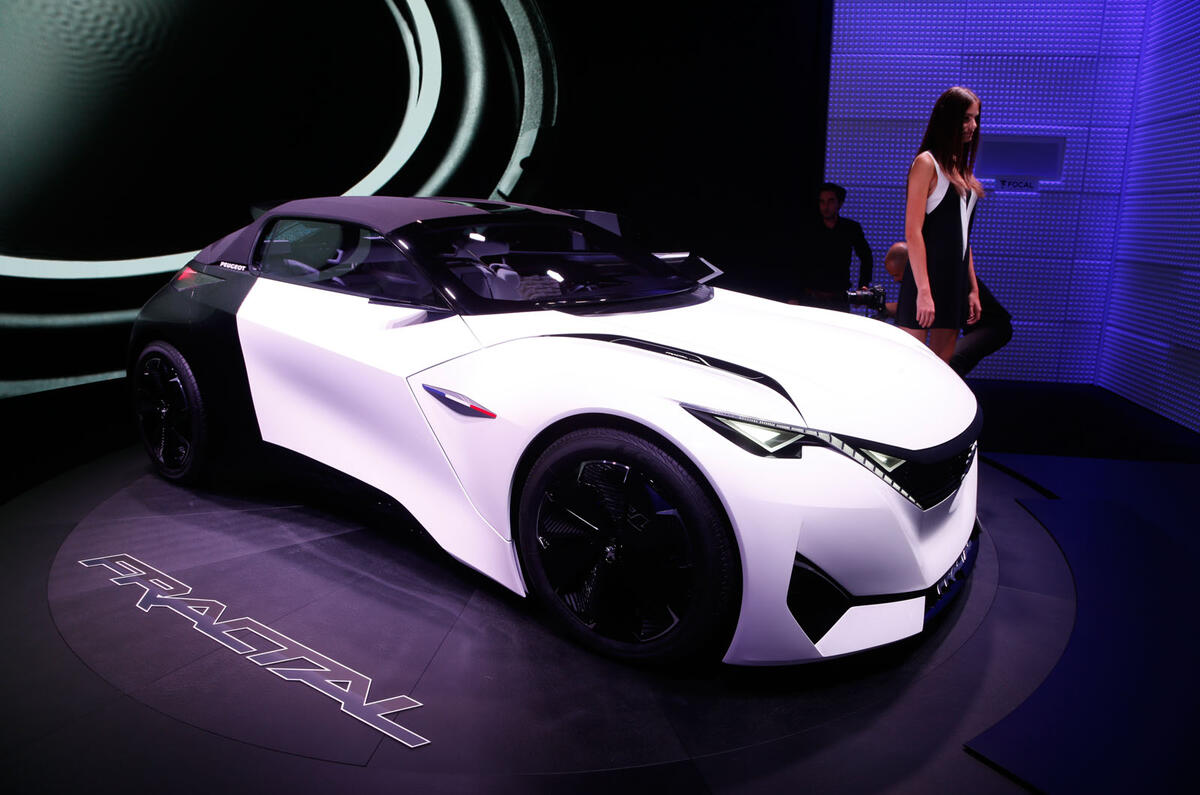The star of the Peugeot stand at Frankfurt was, oddly, not sat centre stage this year. Instead the exciting and interesting Fractal was tucked away off to the left in a little alcove, and as a result it didn’t attract as much interest as it perhaps deserved.
A two-door electric coupe doesn’t sound too groundbreaking - we’ve seen a few concepts along those lines over recent years that haven’t made it to production - but it was the little details that made this quite appealing in my view. Looks wise it treads a fine line between bonkers and the sort of stuff that will make it onto production cars in the coming years. Sure, anything that sits that low down will be a nightmare in town (even if it can raise and lower its ride height), and it is a massive leap from the current cars in terms of styling so it is more likely to be a precursor to elements of a future Peugeot than a whole car.
It is the interior that appealed particularly, though, as it shows the future of Peugeot’s i-Cockpit. This is what the company calls the interiors of its current cars, but recognises that it hasn’t been fully understood yet.
Peugeot’s boss Maxime Picat knows that the public thinks many people think it is only one element of the 208/2008/308’s cabin: “We really wanted to show it is not just a small steering wheel - it is new organisation for eyes and for hands. Here we have showcased how we can push that further.”
This involves heavy use of 3D printing, lots of head-up displays and a sound system that can create the illusion of movement.
Personally I have never been a big fan of the small steering wheel in Peugeot’s latest cars, but the rest of their interiors have taken massive steps in recent years and this attention to the cabin is an encouraging sign that this will continue.
Add to this the fact that the Fractal claims a range of 280 miles on a single charge, has a combined power output of 335bhp and should manage 0-62mph in 6.8 seconds, and it all sounds rather exciting.






Join the debate
Add your comment
Small steering wheels in